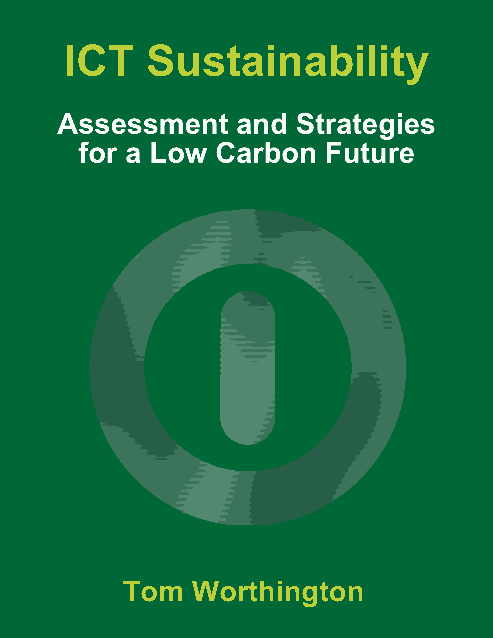Tom Worthington is an IT consultant and course designer for vocational and postgraduate university courses. In 2010 he was awarded Canberra ICT Educator of the Year by the Australian Computer Society, for his work on sustainable e-learning. Tom is an Adjunct Senior Lecturer at the Australian National University. In 1999 he was elected a Fellow of the Australian Computer Society for his contribution to the development of public Internet policy and was the first webmaster of the Department of Defence. He is a Past President, Honorary Life Member, Certified Professional and a Certified Computer Professional of the society as well as a voting member of the Association for Computing Machinery and a member of the Institute of Electrical and Electronics Engineers.
The Prime Minister recently announced extra funding for vocational training. This opens up new business opportunities for innovative e-learning via smart phones and tablet computers. Tom Worthington discusses his award winning "ICT Sustainability" course and how he uses e-books and on-line discussion forms to deliver globally accredited education to students worldwide.
On 1 February 2012, the Prime Minister announced low cost loans for vocational students and subsidies for entry-level courses in high demand job categories. Foundation and entry-level courses will be directly subsidised by the federal government, in areas such as health, business, hospitality, communications, construction and transport. For longer Diploma and Advanced Diploma courses, students could apply for a loan to cover the cost (similar to the scheme already in place for university courses). Students would be "guaranteed" a government-subsidised training place, but it is not clear what measures will be put in place to meet the likely demand and so honour that guarantee.
It is not clear how educational standards will be maintained under an increase in demand. Australian governments have funded the development of e-learning for the vocational sector over several years and this would be one way to meet the new demand cost effectively and maintain standards. This would also allow students to more easily study and work at the same time. Students can study via their smart phone or tablet computer, on the bus or at their mining camp.
E-learning is often thought as a second best form of training, to be used for low level skills. However, the Australian Computer Society (ACS) provides postgraduate e-learning in advanced business, management and technology topics in their Computer Professional Education Program (CPEP). This is accredited as part of a global program and has Masters-level articulation at several Australian institutions.
The ACS commissioned me to design an E-learning course, which was first run February 2009, as part of the CPEP. The course has been adapted for the Australian National Unviersity (from July 2009) and by Athabasca University (Canada).
ICT Sustainability was prepared in Moodle Book format, then converted to Web, iPad, Kindle, PDF and paper book formats.
The Moodle Book Module provides a simple implementation of an e-book, with each chapter as a web page. This can be used to consolidate all of the notes for a course. This prevents students being overwhelmed by the volume of material at the start of the course, but still have access to all notes.
The commonly used eBook formats are based on HTML web formats. Provided simple formats are used, these work on tablet computers and smart phones, as well as desktop computers.
.For the technically minded, Apple iPad uses EPUB, a web based e-book format similar to Amazon Kindle format. There are conversion tools available). Learning Management Systems (LMS) use the similar IMS Content package format.
The important point is not the tool used, but standard HTML and accessibility guidelines. The material can then be displayed on a wide range of web browsers, on desktop computers, smart phones and tablet computers (including Google Android and Apple iPad). No special mobile version or "app" is required.
Rather than create content specifically for mobile devices using "Apps", the content can be prepared using Web Content Accessibility Guidelines so that it will work in a wide range of contexts. Test tools such as the W3C mobileOK Checker and TAW are also available to quickly check content.
Much of this involves avoiding complex formatting, using simple layout and labels. As an example, use a template to consistently set headings and fonts. Put captions on images. Lay out content with what the student need to know first, first. Use the same labels consistently throughout the course. If colours or icons are used, remember that not everyone can see them.
E-learning need not be just receiving content prepared by teachers. A Learning Management System, such as the free open source Moodle, provides forums for students to discuss what they are learning. This also teaches students how to use the same on-line collaboration techniques in the workplace.
The techniques of using mentored collaborative on-line learning for computer professional education were adapted by David Lindley. A group of no more than 24 students work together with the one tutor for 12 weeks, discussing how the topics presented in the course apply in their workplaces.
The key to getting students to discuss a topic is to reward them with marks every week and provide them with helpful feedback on how to do better. It also helps to have the student answer from the point of view of the workplace: "In your current work place, or one you are familiar with, how would you...".
Slides for these notes are also available.
Version 1.0, 28 March 2012, Tom Worthington

Mobile Learning for Green IT, Tablets, eBooks and Smart phones by Tom Worthington is licensed under a Creative Commons Attribution-ShareAlike 3.0 Unported License.



